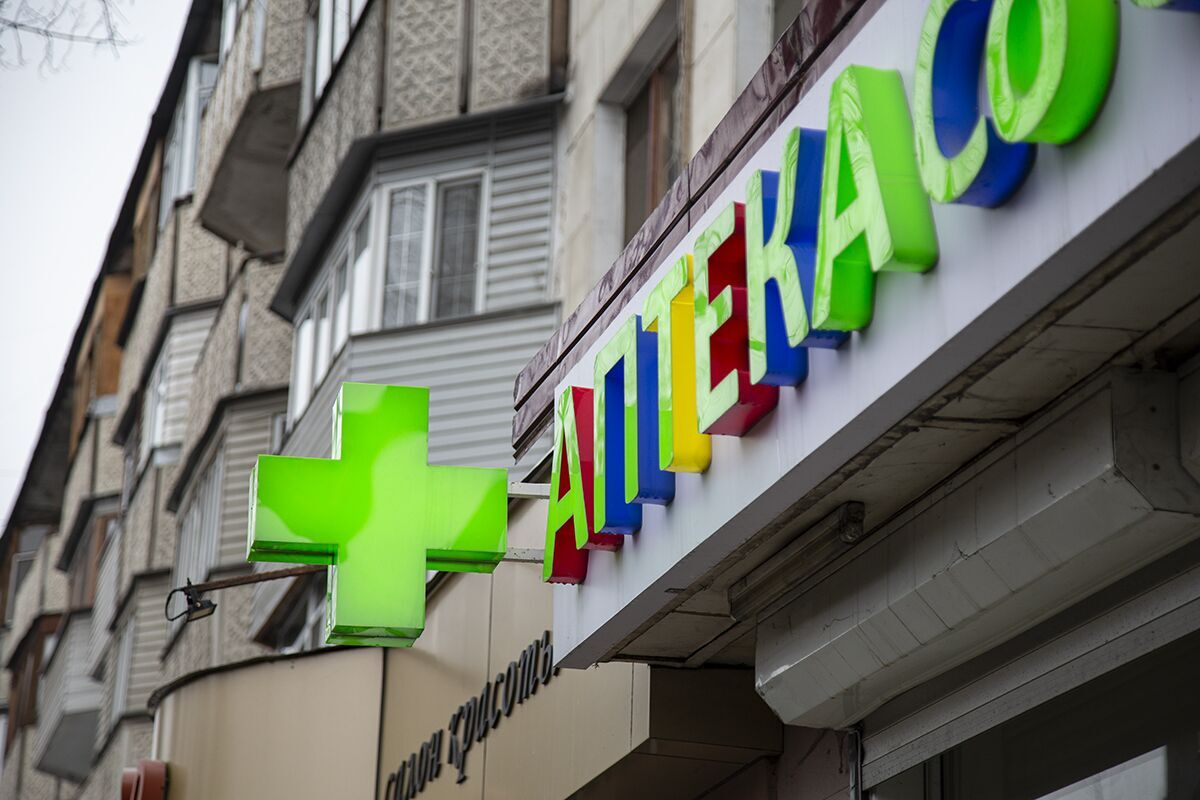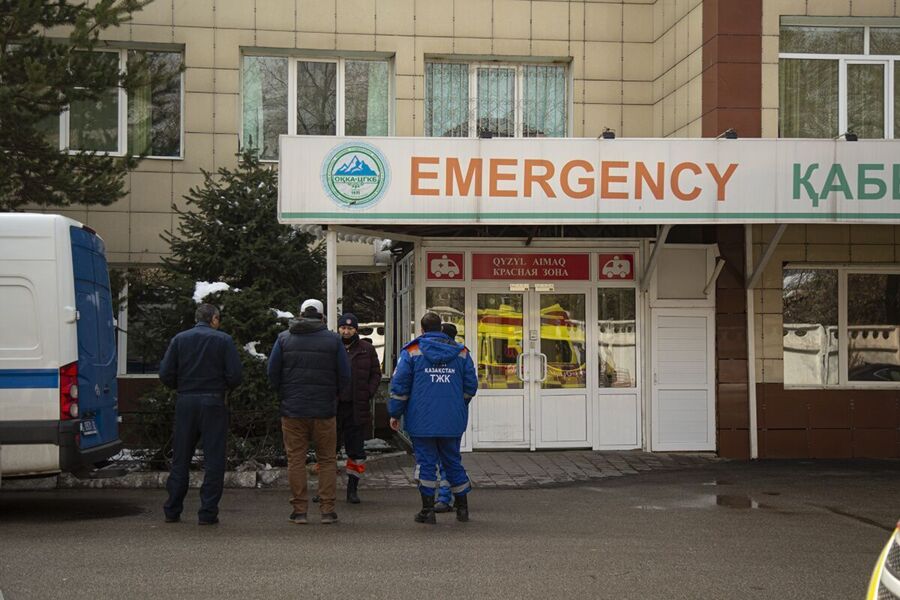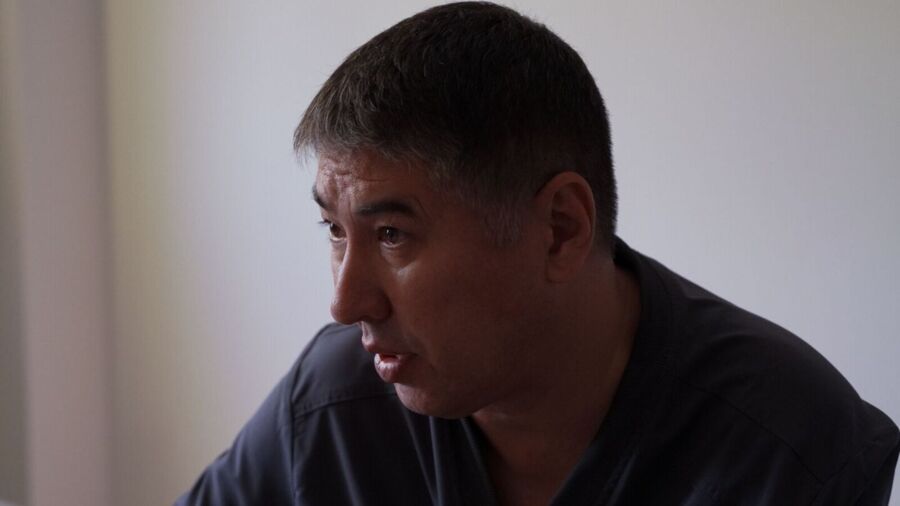Pharmacy owners are being fined in Kazakhstan for selling prescription drugs without due scrutiny, effectively helping spread addictive substances among the population.
Experts have called these medicines “pharmacy narcotics” and say that they are being used either to enhance the effect of synthetic drugs or as readily-available substitutes.
In 2020, a new pharmacy opened at the intersection of Tole Bi avenue and Bruno street, in the western part of Almaty, the country’s largest city. Local residents complained about the patrons that started to crowd the area: they say they were drug addicts.
The customers eagerly bought packs of Tropicamide, eye drops used to dilate the pupil during eye examinations. But they were not seeing an ophthalmologist, they were looking to get high.
Injected intravenously, Tropicamide has severe effects on the mind. Pharmacies know that selling these drugs without prescriptions to the general public is a way of facilitating addiction.
When addicts started populating the benches in the courtyards near the pharmacy, occasionally provoking fights or stealing petty cash, local residents called the police from the nearby station, but the authorities failed to deal with the public health consequences of an increased presence of intoxicated pharmacy customers.
A young woman who spoke to Vlast on condition of anonymity, said the state agencies could not act without a clear proof of the crime: “They told us that without a ‘smoking gun’ they can’t do anything.” Days later, at the initiative of the owner of the pharmacy, the sale of addictive substances stopped.
According to residents and experts, such sales should not have taken place, because Tropicamide and Tramadol (an opioid pain medication) should not be sold without a doctor’s prescription.
Saniya Keikibayeva, the owner of the pharmacy where young boys from across the city went to buy opioids and other psychotropic substances, had been fined in February for improper sale of pharmaceutical products.
In April 2022, after months of complaints from local residents, Nikolai Karpov was arrested for illegal possession of psychotropic drugs in Uralsk, a city in north-western Kazakhstan. Charges were later upgraded to sale of narcotics, but Karpov was oddly not kept in pre-trial custody.
According to Aslan Utepov, chairman of the NGO Against Corruption, the charges brought against Karpov would have warranted a stricter vigilance ahead of the trial.
“His associates have continued to receive and distribute the drugs through him. He has strong ties with local pharmacies who supply the product,” Utepov told Vlast.
In September, Karpov was again detained after the police found around 400 vials of eye drops in his car.
Inspections Frozen, No Oversight
Kazakhstan’s Ministry of Health said that the spreading of illicit sales of drugs could be related to a temporary freezing on inspections on small enterprises.
“Pharmacies deliberately sell such drugs without prescriptions, exploiting a loophole: an inspection freeze in relation to small businesses, including micro-entrepreneurs,” the ministry said in a written response to Vlast.
Yet, the Ministry of Health, together with the Ministry of Internal Affairs, drafted a roadmap against drug trafficking and addiction in a strategic paper for the years 2021-2023. Official statistics show that around 18,500 people are under observation for drug use (or around 0.1% of the population). Most of the users are adults between the ages of 35 and 45.
Marina Beloborodko, head of the Mental Health Center, believes that children and adolescents are the most affected age group. The price of pills is affordable and the fines against unscrupulous pharmacies are small in comparison to the profits they make from selling prescription drugs over the counter.
Switching to Legal Drugs
Although not legally classified, ‘addiction from pharmacy drugs’ is understood to be a widespread problem in Kazakhstan since 2010. In this period, semi-synthetic heroin has gradually disappeared from the black market, leading addicts to turn to pharmaceutical substitutes, says addiction therapist Bakhytzhan Nuraliyev.
“These drugs are all prescription drugs. Unfortunately, unscrupulous pharmacies sell them to drug users, even to children,” Nuraliyev told Vlast. “You can see many blisters of tramadol and other drugs near garbage cans in the courtyards. There used to be piles of syringes, now it’s pills and eyedrops containers.”
It is difficult for law enforcement to sanction users of drugs that can be bought legally. “Everything which is not forbidden is allowed. Plus clandestine laboratories are often able to make small changes to the chemical structure of the legal drugs to enhance their toxicity,” said Nuraliyev, who believes it generally takes months for the authorities to discover the criminal groups behind the drugs.
In 2019, by not including Tramadol in the list of psychotropic products that should undergo an additional quality control, the government effectively failed to hinder its spreading.
Doctors say that the average age of drug usage among men is shrinking and is now within the 16-25 bracket. At this age, however, it is increasingly difficult to provide therapy in hospitals and clinics. A regular treatement against addiction would run for six months, but patients often leave the premises after a few weeks, with a heightened risk of relapsing.
A severe underfunding of addiction treatments have kept healthcare services lagging behind.
“When someone has depression or anxiety disorders, they will never be physically healthy. Unfortunately, psychiatry and addiction therapy are funded on a residual basis, as most attention goes to more traditional medicine, such as cardiology and oncology,” Nuraliyev said.
Drugs, Delivered
Psychotropic drugs can even be purchases remotely. Online stores have an even wider range of pharmaceutical products available for delivery, some of which are not for sale in Kazakhstan.
Mostly based out of Russia, these websites only deliver after an interaction with a sales consultant, making the processing and the payment of the order opaque. The order is shipped via private delivery services or Kazpost and the payment is generally processed through international money transfer services.
Svetlana Shtopol, a lawyer, said that online sales represent yet another loophole that makes drugs readily available, despite a law mandating the presence of a pharmacist to purchase medicine.
“During online sales, what is considered the moment of sale? How are prescriptions checked? Is the sale fully conducted by a pharmacist?,” asked Shtopol.
A punishment that could work against unscrupulous pharmacies, according to the lawyer, is the suspension or withdrawal of the license. “This could be a better deterrent for pharmacies, instead of just monetary fines,” Shtopol said.
Experts agree that, rather than ignorance, some pharmacists are driven by greed. “They lack social responsibility,” according to Shtopol.
This article was originally published in Russian. This is an edited version.
Поддержите журналистику, которой доверяют.










